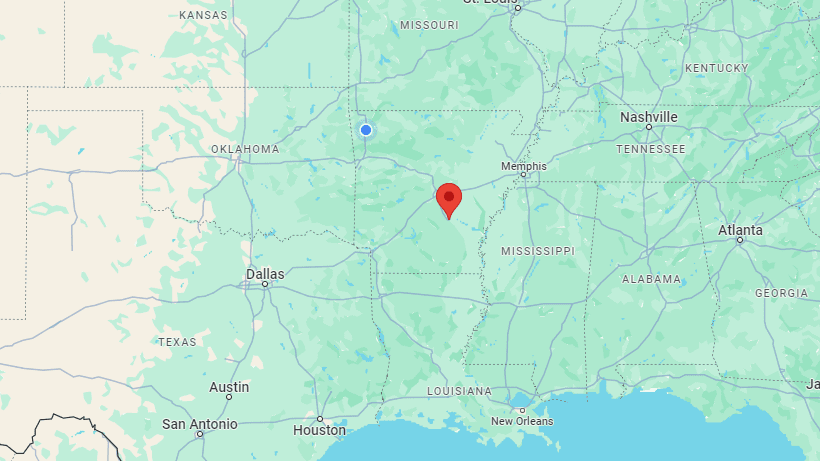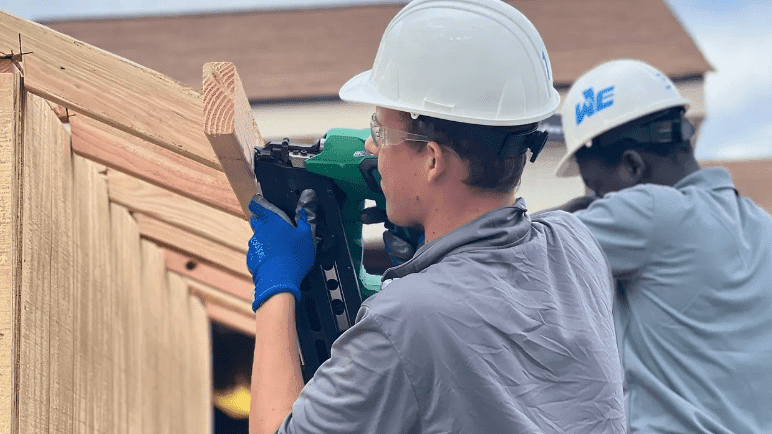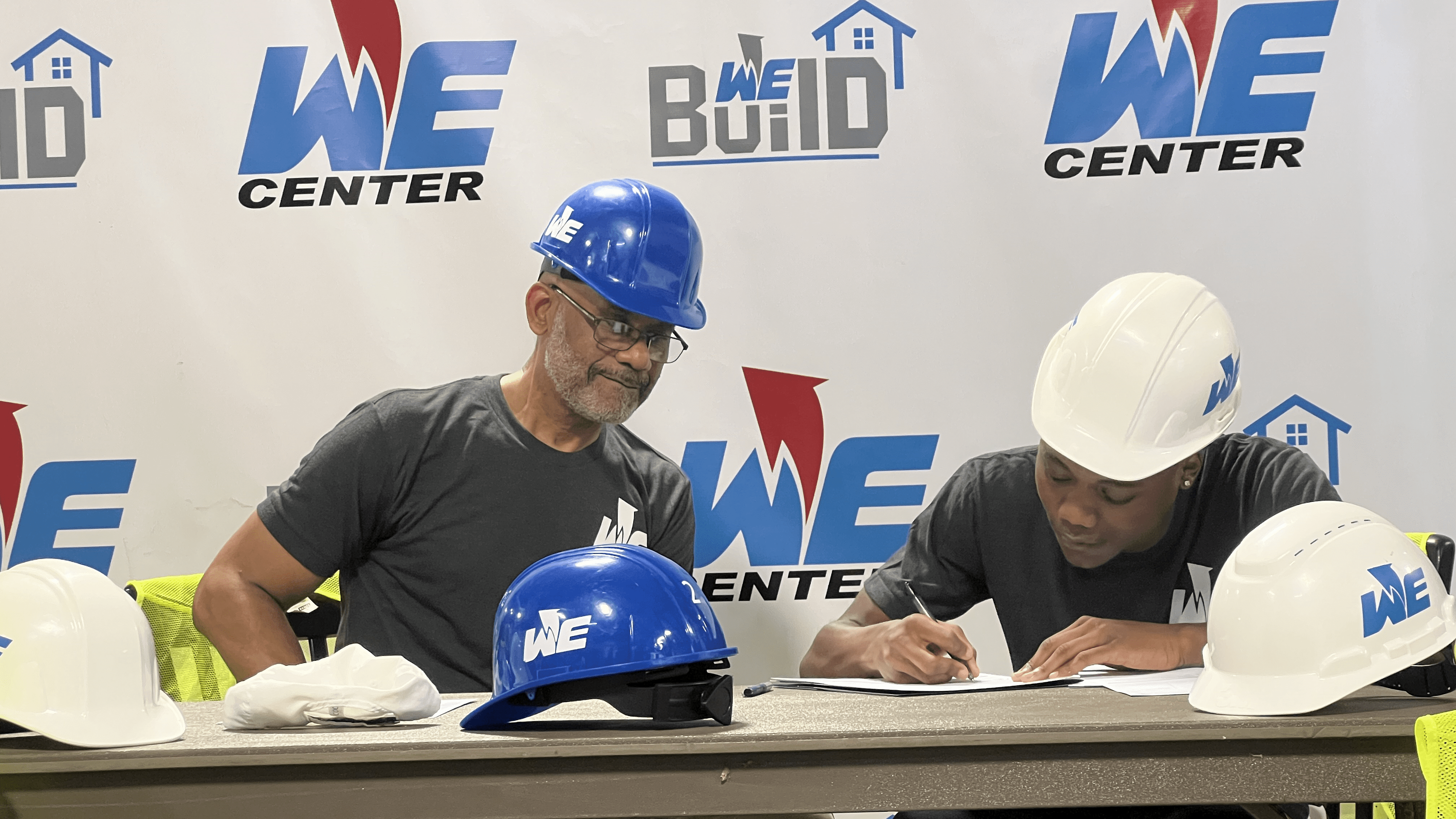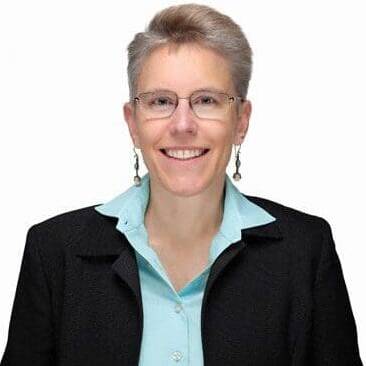Pine Bluff, Arkansas is situated where the Mississippi Delta and flat farmland intersect. The community has a rich cultural history and is known as the “Gateway to the Delta.” A decline in economic growth, and a history of redlining and other discriminatory practices have stifled the quality of life in the area. As a result, the community is dealing with aging housing stock and a decline in population over the last few decades.

Thirty years ago, Codney Washington recalled fond memories of growing up in Pine Bluff, Arkansas, where the close-knit community felt like a warm embrace.
With youth programs, sports leagues, and a strong school system, Pine Bluff had a cozy “Mayberry feel,” especially made obvious to Codney because his mother, Shirley Washington, had deep ties in the community as a former teacher.
But as Washington entered adulthood, Pine Bluff, like many towns in the Arkansas Delta region, faced economic challenges. Job losses and a declining population created uncertainty. Older residents passed down homes to their children, who often chose to rent them out due to limited employment opportunities.
This surge in rental properties resulted in economic instability that contributed to a rise in violence and crime, particularly in neighborhoods like Evan Jones’, Marketing Director at We Center/We Build.
“Growing up my neighborhood was crime central,” said Jones, who spent his childhood in west Pine Bluff. “There was always shooting, fighting, and robbing. Our house got broken into. And it’s only gotten worse.”
Giving Back
After the 2008 housing market crash, Codney Washington, a former construction worker, turned to real estate investments.
When he learned of a vacant skating rink for sale in Pine Bluff, he saw a chance to help his community. Seeking financial assistance, he approached Hope Credit Union, which directed him to alt.Consulting, now known as Communities Unlimited (CU).

With CU’s backing, Washington revitalized the long-shuttered skating rink, extending his vision to establish a neighborhood community center. Identifying the necessity for vocational programming, he converted the center into a focal point for instructing youth in construction trades, where he crossed paths with Verna Perry, a pivotal figure in his vocational journey.
Washington worked in the skating rink until COVID-19 forced its closure. Washington then started WeCenter/WeBuild, offering a space for learning, entrepreneurship, and a home manufacturing program to promote personal growth and development in Pine Bluff.
WeCenter specializes in vocational training, with Washington devoting himself to mentoring at-risk youth alongside Perry. Washington finds inspiration in the vibrant energy he observes in the youths’ eyes, their curious voices, and their eagerness to engage in diverse activities.
He notes that these young individuals yearn for positive influence and guidance — someone who prioritizes their growth and fosters lasting connections, ultimately molding them into valuable assets for their community.

“Over the past 30 years that drive for constant community involvement has developed into a desire to make vocational and entrepreneurial development programs my primary focus. I have an attachment to the Pine Bluff community, and my involvement with the youth over the last 10 years has created a desire within to help develop their potential – develop the potential of our future communities.”

— Codney Washington
Washington’s WeBuild organization aims to rejuvenate inner-city neighborhoods, providing a pathway to homeownership for all. They offer education, budgeting help, and affordable housing options to remove barriers to ownership. Their mission extends to revitalizing the Delta region by reclaiming vacant properties, creating affordable homes, attracting businesses, and training skilled workers.
“We want to empower homeowners in our neighborhoods, giving them a voice and a sense of ownership beyond their homes,” Jones said. ”We’re not just creating skilled workers, but community leaders who take pride in keeping their neighborhoods safe and beautiful.”

Partners Coming Together
CU and come dream.come build. (cdcb) joined forces to expand DreamBuild, previously known as the MiCasita model, providing an affordable and customizable option for aspiring homeowners who can grow with families as their needs change.
Initially launched in Brownsville, Texas, DreamBuild targets rural areas lacking basic services like water and sewage. Now expanding nationwide, DreamBuild partners with CU and its offshoot, WeCenter/WeBuild, to introduce volumetric modular housing solutions in Pine Bluff.
“DreamBuild is meant to address the shortage of safe, affordable housing, and we’re excited to partner with Communities Unlimited and We Center/We Build as they expand this innovation to Pine Bluff,” said Nick Mitchell-Bennett, Chief Executive Officer at cdcb. “Housing is becoming too expensive for middle- and lower-income families everywhere and this collaboration will advance affordable housing and generate jobs in the Delta region.”
Audra Butler, CU’s Area Director of Housing, stressed their close ties to Pine Bluff and the Delta, highlighting Washington’s role as a builder and his connection to CU as key factors in initiating the modular housing program.
"We're taking a unique approach to expanding the DreamBuild model. Instead of CU owning the project, we're empowering a local entrepreneur in Pine Bluff. With We Center's job training and community development focus, we're addressing Pine Bluff's specific needs. Our goal is to support communities in identifying their solutions and provide the resources they need to achieve their goals."

— Audra Butler, CU Area Director Of Rural Housing
Washington underscores the priceless personal bond he has forged with CU. He credits his relationships with CEO Ines Polonius and Butler as pivotal to his organization’s success, praising CU’s readiness to provide support and embrace his vision.
“Communities Unlimited is like the sister I never had,” Washington said. “Without them, DreamBuild, the home program we’re establishing in Pine Bluff, wouldn’t have taken off. They listened to my vision, embraced it, and have been with me every step of the journey. Their commitment to launching a housing program and allocating staff to Pine Bluff is incredibly meaningful. While we build the homes, we rely on partners like Communities Unlimited to help us place people in those homes.”
Polonius emphasized the importance of CU’s partnership with cdcb and WE Center/WE Build. Supported by the Wealth Opportunities Realized through Homeownership (WORTH) Grant from Wells Fargo, these organizations are committed to addressing housing challenges while also striving to close the homeownership gap between households of color and white households.
“By pooling our resources and expertise, we're not only providing affordable housing solutions but also catalyzing economic revitalization and creating workforce development opportunities in the needed building trades. This deep collaboration highlights our unwavering commitment to empowering communities and fostering sustainable development for an enhanced quality of life.”

— Ines Polonius, CEO Communities Unlimited
This is Part One in a Four Part series highlighting the housing developments using volumetric modular housing to address the housing needs in Pine Bluff, AR. Follow us on Facebook or LinkedIn to see when Part Two is available.

